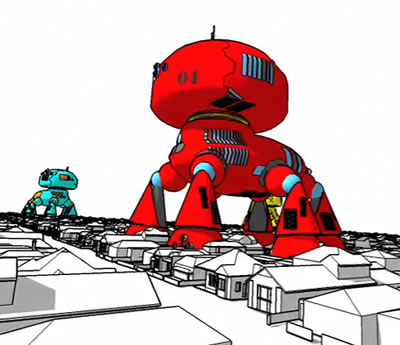Fluffy was not an indoor cat. Since she traveled to Madrid when she was a mid-sized teen she learned that the world has a lot to offer, and so the domestic realm doesn’t suit her. The American suburbs, for Fluffy, are the domestic indoors exteriorized—privatized, predictable, philistine, repressive, lazyboy'd, apathetic, eco-wasteful. The white short-haired apolitical, patriarchal cat families seem to feel most comfortable there. In the suburbs animal injustice and diversity are masked by multinational strip-malls, neutered nature, and the lack of any public space (where one could resist or get away from its void). A lot like a bad dream. A long time indoors, or in the suburbs, and she feels limited and drained of her physical and mental energy. But clearly aware that she must leave, and grateful that she can. Haruki Murakami’s Norwegian Wood reminded her of this and motivated her to write something. (H. Murakami is adept to writing about the metaphysical depths of the feline specie.)
Fluffy couldn’t continue with Norwegian Wood. One quarter of the way through and she put it aside, curled up, and fell asleep in her temporary suburban accomodation. She didn’t want to read another story about elite undergraduate relationship-explorations with a 1970s Americana soundtrack. (Murakami's other novels were much more original!) But a couple hours later the novel revisted her, in her dream, or nightmare. Fluffy was taken back to the loneliness of her years in East Quad at U of Cheshire, where mid-size cats “became of age,” and she was excluded. As usual her hearing apparatuses and glasses didn’t exist; she could only see red-orangeness, and sounds were muffled. But somehow she managed to look out her dorm window and see that--they were moving! The entire dorm was on train tracks! They were taking her somewhere! Fluffy managed to escape through a flimsy hollow-core door. Later she discovered Kitkat in a classroom. Kitkat was crying like never before. Fluffy licked Kitkat on the ear, and Kitkat sobbed that her thesis adviser had decided to transfer to a different university. Fluffy woke up upset and decided that she would not take Norwegian Wood back with her to Tokyo. Today, while packing, she placed the novel on a shelf. (If for some reason she really wants to read it later she has it in pdf file.)
Is Fluffy too hard on the suburb? Should she give Norwegian Wood another try?
 Suburb-Eating Robot by Andrew Maynard
Suburb-Eating Robot by Andrew Maynard





